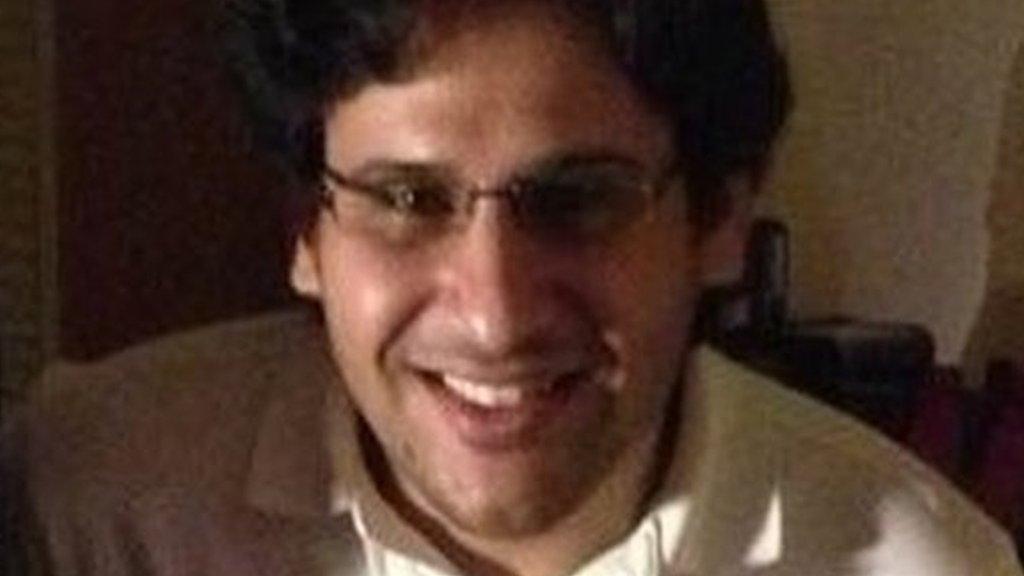Saudi Arabia 'arrests two human rights activists'
- Published
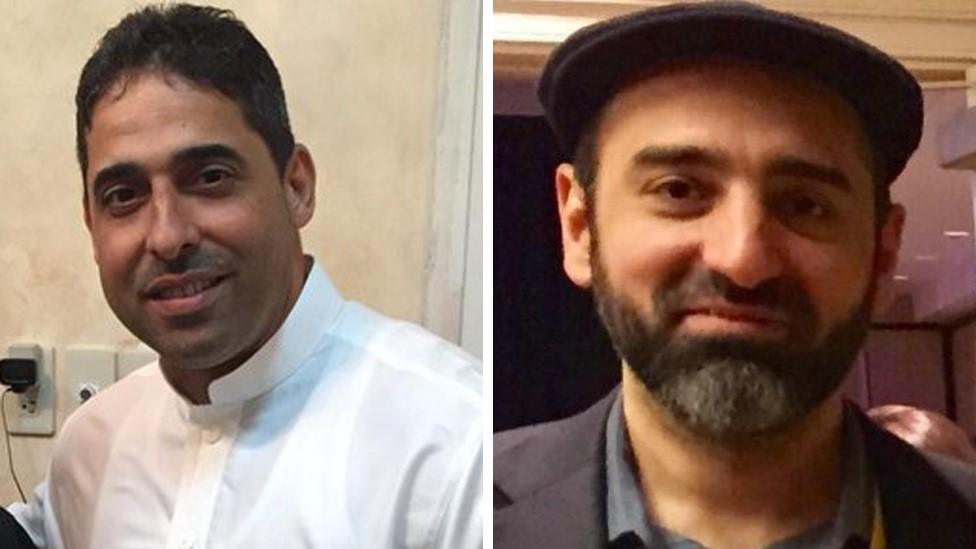
The human rights groups called for the release of Ahmed al-Musheikhis and Essam Koshak
The authorities in Saudi Arabia have arrested two human rights activists so far this year, Human Rights Watch and Amnesty International say.
Essam Koshak and Ahmed al-Musheikhis were summoned for questioning by police in Mecca and Qatif last week.
Officials have not disclosed the reasons for the detentions.
But HRW said, external they "fit a pattern of ongoing repression" against peaceful advocates and dissidents, at least 25 of whom have been convicted since 2011.
Many have been handed sentences as long as 10 or 15 years after being found guilty of charges including "breaking allegiance with the ruler", "sowing discord", "inciting public opinion", "setting up an unlicensed organisation", and violating the cybercrime law.
'Relentless persecution'
Mr Koshak was detained after being summoned for interrogation by the Criminal Investigation Department (CID) in Mecca on 8 January.
The 45-year-old was not allowed to appoint a lawyer and was being questioned about his Twitter account, which he mainly used to tweet about human rights issues, according to Amnesty, external.
Mr Musheikhis, a founding member of the unregistered Adala Centre for Human Rights, was telephoned by CID officers and told to report to a police station in Qatif, in Eastern Province, on 5 January. He was subsequently transferred to the city of Dammam, where he remains in custody.
Amnesty said the 46-year-old was known for his work including helping relatives of those detained in Eastern Province as part of protests by members of the kingdom's Shia Muslim minority against what they say is discrimination against them by the Sunni-led government.
Mr Musheikhis' brother, Yussuf, was sentenced to death, external in January 2016 after being convicted of offences including "armed rebellion against the ruler". Amnesty said Yussuf al-Musheikhis was convicted after a grossly unfair trial at which he claimed he was tortured into "confessing".
Amnesty said another activist, Issa al-Nukheifi, had been detained in Mecca since 18 December after being summoned for questioning about his tweets.
"Saudi Arabia's relentless persecution of human rights defenders is a blatant campaign aimed at deterring them from speaking about the human rights situation in the country and working on behalf of victims of violations," said Lynn Maalouf of Amnesty's Beirut office.
The Saudi government has in the past insisted that its judiciary is independent, and that all trials are transparent and in line with Islamic law.
HRW also reported on Tuesday that the Saudi authorities had recently banned Jamal Khashoggi, one of the country's most prominent journalists, from publishing any of his writings in the country.
- Published25 March 2016
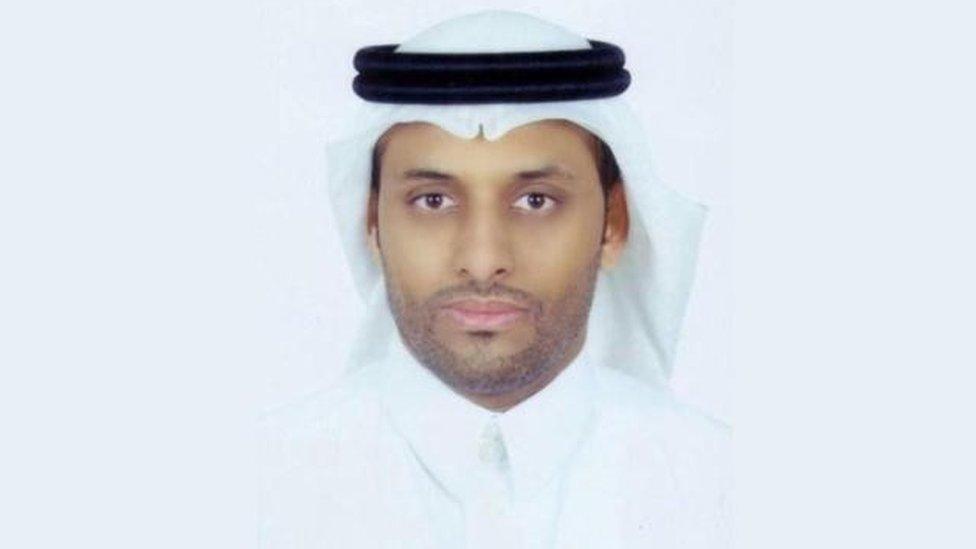
- Published13 January 2016
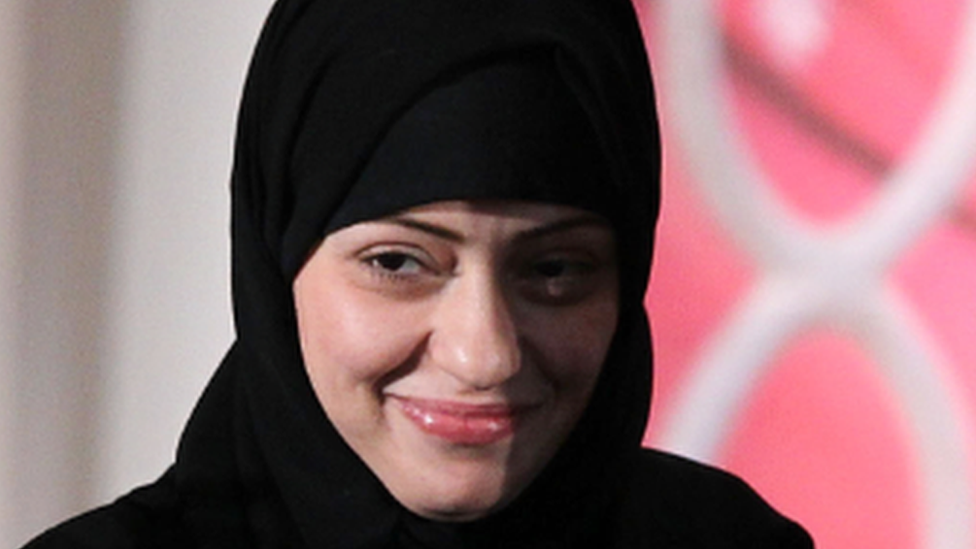
- Published12 June 2015

- Published7 June 2015
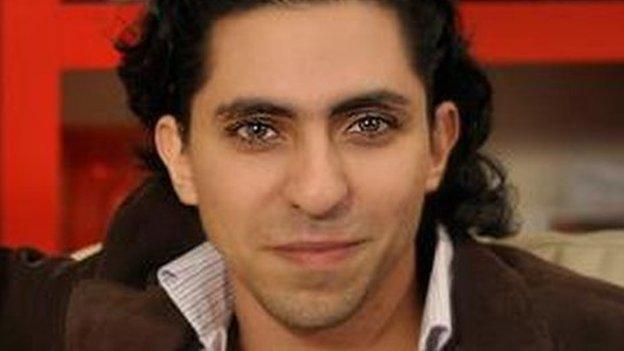
- Published7 July 2014
